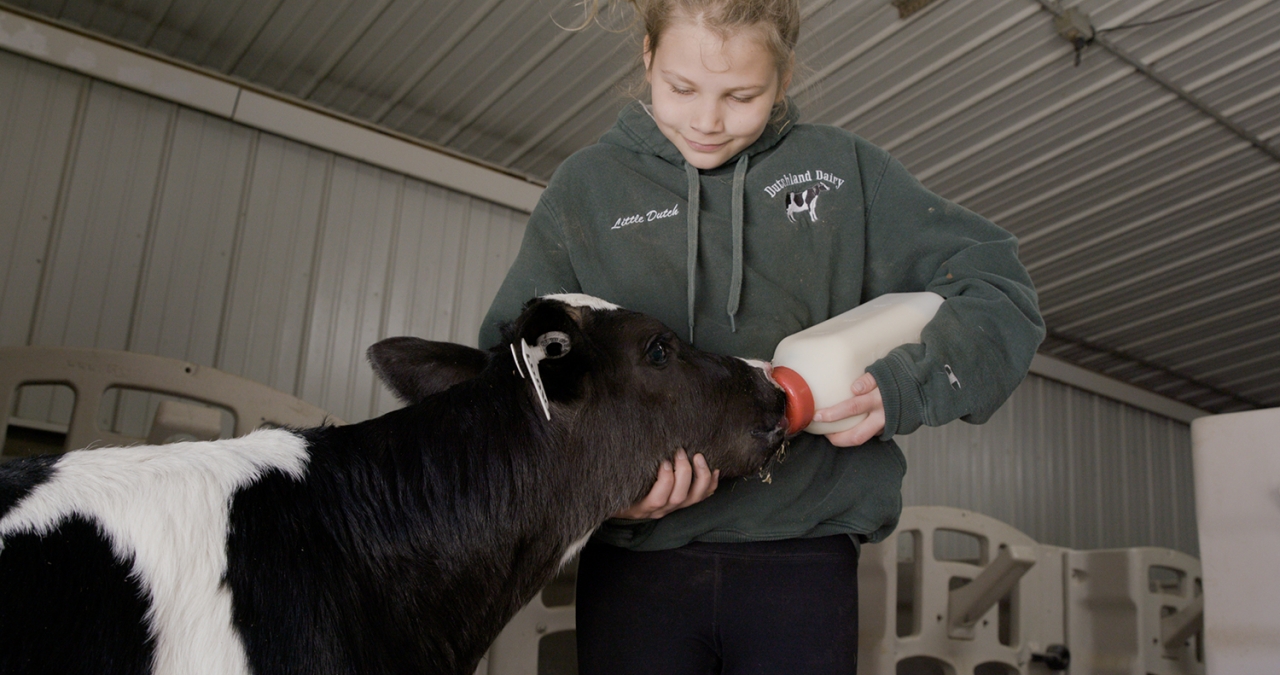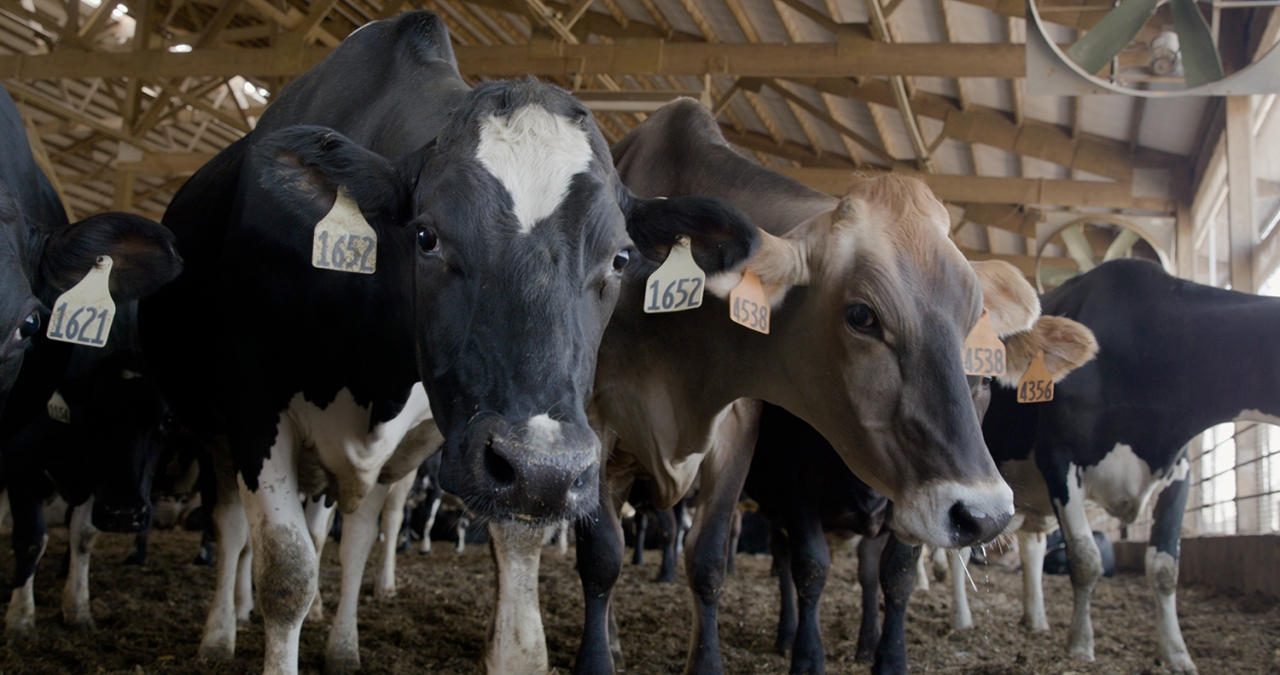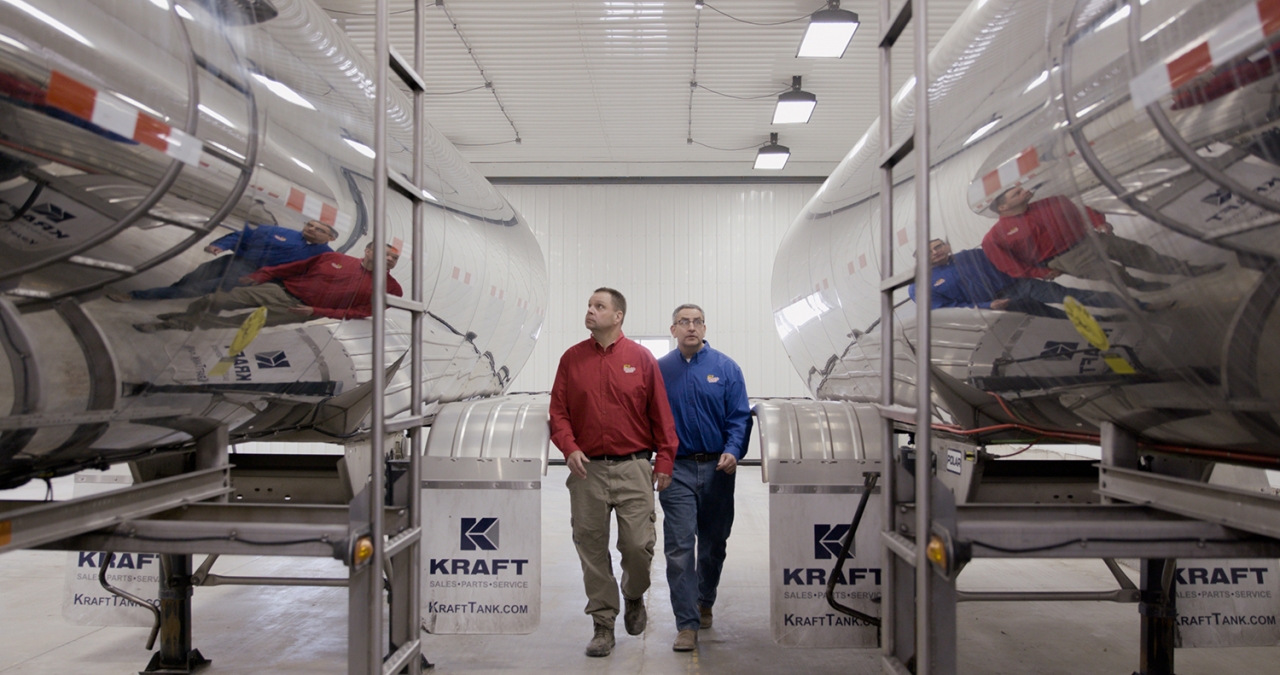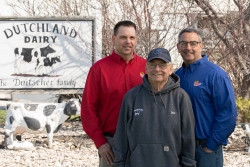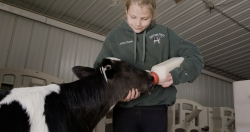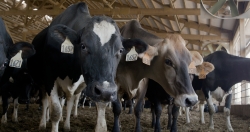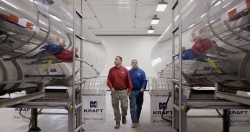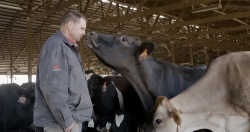A Story of Connection Between Farm & Faribault
June 19 2023
Last month we celebrated American Cheese Month, and now in June we tip our hats to dairy. June Dairy Month started back in the 1930s and was originally called “National Milk Month.” The name was quickly changed to encompass all things dairy and celebrate the nutritious and delicious contributions the dairy industry has made. We’d be remiss if we didn’t focus our attention this month on by far the most key ingredient involved in making cheese – the milk. Where does the milk used to make Caves of Faribault cheeses come from? To find the answer, you must travel 160 miles south on 1-35 to the town of Rolfe, Iowa, home of Dutchland Dairy.
You may be surprised to find that all of the milk used to make Caves of Faribault cheeses comes from Dutchland Dairy. Started in 1998 and now a part of the farmer-owned Prairie Farms Dairy cooperative network, Dutchland Dairy is a family operation that has grown significantly over the decades and now employs almost 30 people. According to a 2021 USDA report, 98% of US farms are family-owned and operated, just like Dutchland Dairy. Run by a trio of father and sons, each handles their own aspect of the business. Son Dr. Dave Duitscher (pronounced “DUTCH-er”) uses his background as a veterinarian to handle cow care, while son Dan Duitscher uses his background in dairy manufacturing to handle the business side of things. And even at 85 years old, you can still expect to see father Dr. Dean Duitscher, a retired veterinarian, helping out. Even the next generation of family has expressed an interest in potentially joining the family business.
Dan, who also serves as a Prairie Farms Dairy Board Member and actually started at sister-company Hiland Dairy for his first job out of college, explains what makes Dutchland Dairy milk, the single-source of milk used to make Caves of Faribault cheeses, so special. And not surprisingly, it all goes back to the cows.
“We are really about quality,” notes Dan of his herd of cross-bred cows. “Having cross-bred cows leads to a higher protein content and higher fat content in the milk.” The cross-bred herd, made up of Holsteins, Jerseys and Brown Swiss is approaching 1900 in size. And with all of that milk to route, Dan must be in close communication with the Faribault plant when it comes to scheduling tankers and submitting quality samples. When Dan picks up the phone to call Faribault, it is often Courtney’s voice he hears on the other end.
Courtney Cowan, Assistant Plant Manager for the Faribault facility, says she is in close communication with Dan’s farm. “We communicate almost daily with the farm on scheduling, amounts and keeping everything clean between the two facilities so we get the best product out of this high quality milk,” says Courtney. For Courtney, having the relationship with a single-source for Faribault’s milk is preferable for cheesemaking. “With single source milk we are not guessing what the components of the milk are,” she explains. “With each load, it stays very consistent for more consistent finished product.”
And that finished product is a delight for Dan to see. “I think it’s really neat to see the cheese aging in the caves,” says Dan, who has made several trips to Faribault to see the caves in action. “And to know that it is our milk is really special.” Dan divulged that his absolute favorite is the St. Pete’s Select, with its complex flavor profile, a result of aging in the sandstone caves for over 100 days.
Just as Dan trusts Faribault will produce premium and award-winning cheeses, Courtney trusts Dutchland’s commitment to the cows. Having in-house veterinarians ensures the animals receive the best of care, resulting in quality milk. “In order to make the highest quality product, you need to know that the cows are taken care of and that the dairy farm cares about the end product as much as you do,” says Courtney. In the rare event that any issues arise, Dutchland Dairy and Faribault are in quick communication to address and resolve the issue immediately. Because the milk is single-source, it gives Caves of Faribault cheeses complete traceability over the product. “We make sure we are both doing our part to produce and deliver the best milk and to create the best finished product for our consumers,” Courtney notes.
With this level of commitment and dedication from both farm and dairy plant, it becomes clear why we celebrate June Dairy Month and thank the key players involved in every step of the process of producing cave-aged specialty cheeses. We asked Dan what he plans to do to celebrate June Dairy Month. With a sigh and a chuckle, Dan responded, “Work.”


